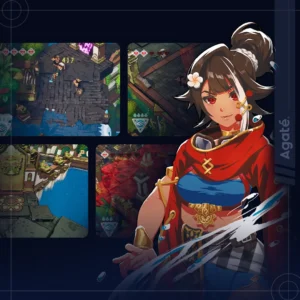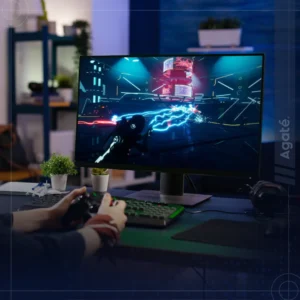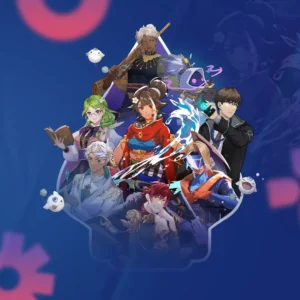Game Development Overview
Game development involves a series of stages, ranging from conceptualization and game design to coding, testing, and launching. It’s a collaborative effort that involves a diverse group of professionals, such as programmers, game designers, artists, producers, and QA testers, who work together to create immersive and enjoyable video games. Each team member contributes their expertise to ensure that the final product meets the desired quality standards and is free of bugs and glitches. With its combination of technical expertise and artistic creativity, game development is a challenging yet rewarding field that continues to push the boundaries of what’s possible in the gaming industry.
The game development industry is one of the most significant and rapidly growing industries in the world. Its popularity is attributed to the ever-increasing market demand. With approximately 3 billion gamers worldwide as of 2022 and an expected increase to 3.8 billion by 2027, the industry is set to grow further. This massive global audience is spread across various platforms, from console and computer games to mobile and VR, allowing developers to create diverse content.
The impact of high market demand also means that the game development industry has become a hub for lucrative job opportunities. With various roles in game development, such as programmers, game designers, artists, producers, and QA testers, there are ample opportunities for people with different skill sets to pursue a career in this field. The industry’s growth potential and the promise of a fulfilling career make it an attractive prospect for many.
As technology continues to advance, the game development industry is continuously evolving, offering new and exciting possibilities for game developers and players alike. New technologies such as cloud gaming and game streaming have further expanded the scope of game development, enabling game developers to create new and innovative games that were previously impossible.
Required Educational Background
To become a game developer, a computer science major is usually the most relevant educational background. Some game developers come from different educational backgrounds, such as art and design, particularly those who specialize in animation or graphic design in the game industry. However, some companies might welcome any educational background as long as you get the required skills and portfolio.
Aside from formal education, game developers require several essential skills, such as programming, design, and project management. Proficiency in programming languages such as C++, Java, Python, and Unity is also critical, particularly if you want to create games for specific platforms such as PCs or consoles.
There are several ways to acquire these skills, including online or offline courses, game development training programs, reading books or other learning resources, or practicing programming independently. You can also join game development communities, both online and offline, such as discussion forums or game developer meetup events. Joining open-source communities can also help you gain experience and learn from other practitioners.
Accumulating experience in game development is of utmost importance and can be achieved by finding simple projects to work on or joining a game development studio as an intern. These experiences will help enhance your skills and qualifications as a game developer.
Job Opportunities in the Game Development
Game development is an industry that attracts the interest of many people and offers numerous possibilities for enthusiasts. It involves a fairly complex process that requires various roles to create a game. Below are the different roles that are involved in game development:
Game Developer: Developers are responsible for creating and programming games. They use programming languages and software development tools to develop games that can run on various platforms, such as PCs, consoles, or mobile devices.
Game Designer: A game cannot be captivating if it doesn’t have rules. The game designer is the one who designs the gameplay, rules, and game concepts. They typically create a game plan in the form of documentation or storyboards. The game designer also decides on the level and difficulty of the game.
Game Artist: If you see visually engaging elements in a game, it’s the work of a game artist. They conceptualize characters, environments, and objects.
Game Producer: In addition to the aspects of the game, someone is needed to manage and monitor the game project and oversee the production process. The game producer creates schedules and budgets, organizes the team, and ensures the project is on track.
QA (Quality Assurance): Before a game is released to the public, it goes through a testing phase to ensure it functions correctly and is free of bugs. This is the job of a QA who tests and debugs the game.
Other Roles: Aside from the mentioned positions, there are numerous other roles required in the game development industry, such as narrative writers, sound designers, composers, marketing specialists, and more. All of these roles work in harmony to create a complete and satisfying gaming experience for players.
How to Join the Game Industry
To break into the game development industry, there are three general steps that you can take:
Develop the Necessary Skills: With so many people interested in working in this industry, there is intense competition. To be able to stand out, you need to master certain technical skills such as programming, graphic design, and animation. You can hone these skills by pursuing formal education, online training, or self-study. It is also important to stay up to date with the latest trends and news about technological developments in the industry.
Build a Strong Portfolio: In addition to having the necessary skills, experience is also important when trying to join the game development industry. A strong portfolio is one of the best ways to showcase your skills and stand out among other candidates. You can showcase game projects that demonstrate your skills and make sure that your portfolio is well-organized and easily accessible.
Network and Establish Relationships: Building networks and relationships within the game development industry can also help you land a job. You can attend game development events, join game development communities, and participate in online forums to meet people in the industry. You can also submit your portfolio to game development companies and ask for feedback to help you improve your skills.
To sum up, the game development industry is a complex and challenging field that encompasses diverse tasks and responsibilities. With the rapid advancement of technology, the prospects for game development are promising and present numerous possibilities for game creators and enthusiasts alike. Despite its challenges, game development remains a fascinating and rewarding career path with a bright future ahead.







